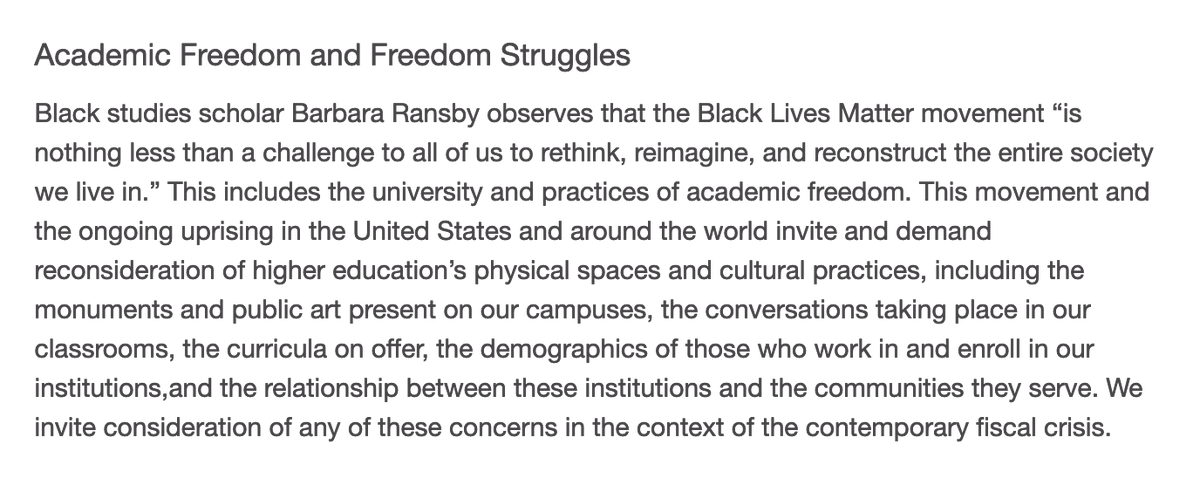I am very excited to come on board as co-editor with Rachel on this next issue of the *Journal of Academic Freedom*. I thought would do a quick thread on the CFP to acknowledge and thank sources of inspiration and questions. And to elaborate some hopes we have for the number. 1/ https://twitter.com/rachelidatweets/status/1308439767122616321">https://twitter.com/rachelida...
First, it seems that academic freedom is often thought of as a domain to defend or preserve. As the first line of the CFP notes, I was inspired by @keguro regular prompt: how will you practice freedom today? While not about academic freedom, per se, the question got me thinking.
How do we not just defend academic freedom, but practice it? How can these practices be expanded? How can they connect with other practices of freedom and freedom struggles? This is the kernel of our CFP. I thank Keguro for that.
I am particularly interested in how we might think of practices of academic freedom as the work of transforming the university and redistributing resources for the common good.
I also know that the language of academic freedom isn’t always used to this end, that it is conflicted. These are conflicts worth exposing and examining. I hope the issue of JAF might do some of that.
Two refrains from Ruth Wilson Gilmore’s 2010 ASA address also bounced in my mind while thinking on meanings of academic freedom:
“Organize. Schools are workplaces.”
AND
“Organize. Infiltrate what already exists and innovate what doesn’t.”
#metadata_info_tab_contents">https://www.jstor.org/stable/41237545?seq=1 #metadata_info_tab_contents">https://www.jstor.org/stable/41...
“Organize. Schools are workplaces.”
AND
“Organize. Infiltrate what already exists and innovate what doesn’t.”
#metadata_info_tab_contents">https://www.jstor.org/stable/41237545?seq=1 #metadata_info_tab_contents">https://www.jstor.org/stable/41...
Along these lines, I’ve been pondering Scholars for Social Justice ( @ScholarsForSJ), the invest/divest campaigns, and the valuable provocations and framings of @abolitionu
. How might we think of this work as practices of academic freedom connected to freedom struggles?
. How might we think of this work as practices of academic freedom connected to freedom struggles?
The focus on political economy and materialist approaches got me to crib Clyde Barrow’s discussion of academic freedom and the “material means of mental production” in *Universities and the Capitalist State*. It is a book worth reading and I thank @nerdosyndical for plugging it.
The struggle has locations. Two sites in the struggle for academic freedom are the classroom and the library. How is academic freedom practiced in these spaces? How can we expand and connect practices?
The territory of struggle also crosses borders. We are interested in practices of academic freedom outside the US, and practices that cross borders.

 Read on Twitter
Read on Twitter








